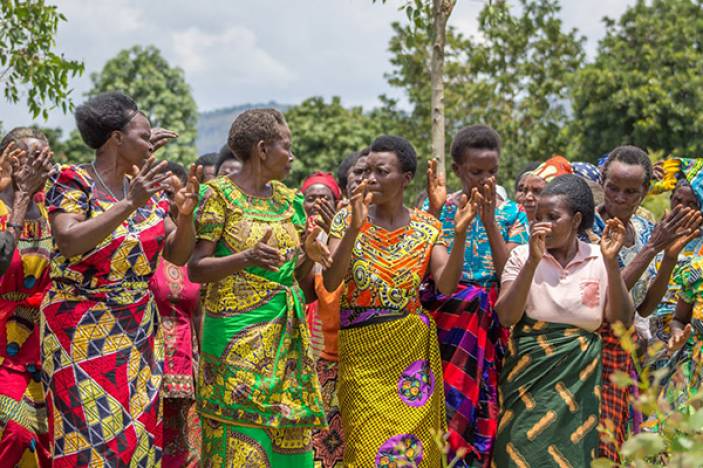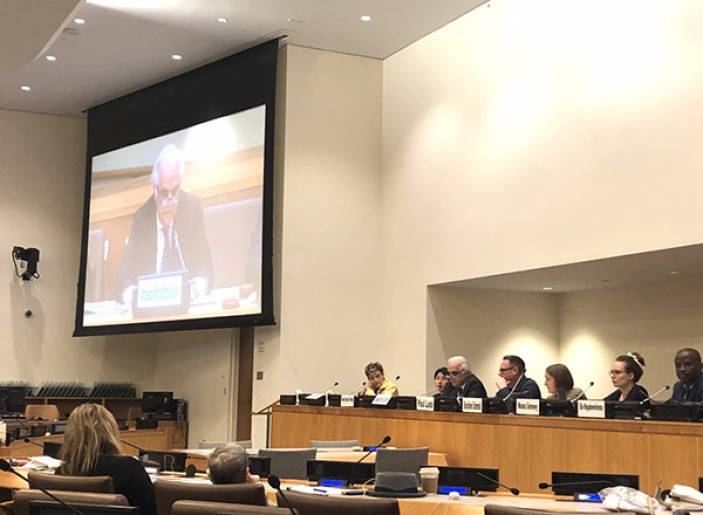
The Sustainable Development Goals (SDGs) have the potential to end poverty, reduce inequality and tackle climate change by 2030. At the heart of the goals is a commitment to ensure that ‘No one is left behind’ and that no goal is considered met unless met for all.
Since 2016, over 100 countries voluntarily reported on SDG progress by presenting their Voluntary National Review (VNR) to the High-Level Political Forum (HLPF), organised every July by the United Nations. In 2019 Rwanda has for the first time volunteered to report on its implementation of the SDGs.
Rwandan organization, NSINDAGIZA is a HelpAge International network member and partner in its SDG pilot programme. Through the support of that programme and of the UN Stakeholder Group on Ageing (SGA), the organisation was selected by the UN to participate at the HLPF 2019, held in New York from 09-18 July 2019, to share the experiences of older people in Rwanda and advocate for their inclusion in SDG implementation.
NSINDAGIZA was created in 2014 to advocate for older people’s inclusion in sustainable development efforts. In 2016, NSINDAGIZA mobilized 9 other civil society organisations and created the “Rwanda Leave No One Behind Network” to represent the voices of marginalised groups such as people with disabilities, widows, people living with chronic diseases and older people.
The SGA, co-chaired by HelpAge International, hosted an official side event at the HLPF, which focused on ‘Confronting ageism and empowering older people to ensure social, economic and political inclusion of all’. Presenting at this event, the President of NSINDAGIZA and co-founder of Rwanda Leave No One Behind Network, Mr. Elie Mugabowishema, commended the political will of the Government of Rwanda in implementing the SDGS. He also welcomed the new national policy for the rights of older people, which is at the final stage for validation.

Through the quotes of older people on their feelings about their rights, Mr. Mugabowishema highlighted how the Government could do even better by making ageing a crosscutting issue across all other policies such as health nutrition, gender, disaster management, social protection. He flagged that older people in Rwanda felt that, while Rwanda has a high speed in technology and infrastructure, older people don’t always benefit given the lack of specific measures to facilitate their engagement through long-term learning, tailored training and education.
He shared two approaches used by NSINDAGIZA to increase the inclusion of older people in the SDGs implementation: capacity building and partnership in fighting ageism, inequality and discrimination. He explained how the organisation collaborated with the National Commission for Human Rights, the Rwanda Elders Advisory Forum and Civil Society to advocate for the improvement of the situation of older people. Through the support from HelpAge International and the Global Alliance for the Rights of Older People (GAROP), NSINDAGIZA was able to organise regular multi stakeholder workshops, which played a big role in advancing the advocacy and awareness-raising campaigns.
Attending the HLPF was a key opportunity for NSINDAGIZA to share the concerns and realities of older people in Rwanda and to interact with different stakeholders working with marginalised groups to share best practices and experiences.
NSINDAGIZA hopes this sense of partnership will be extended to the Government of Rwanda, and that it will continue to involve civil society in SDG implementation, including through a clear follow up mechanism to review recommendations from the HLPF.
